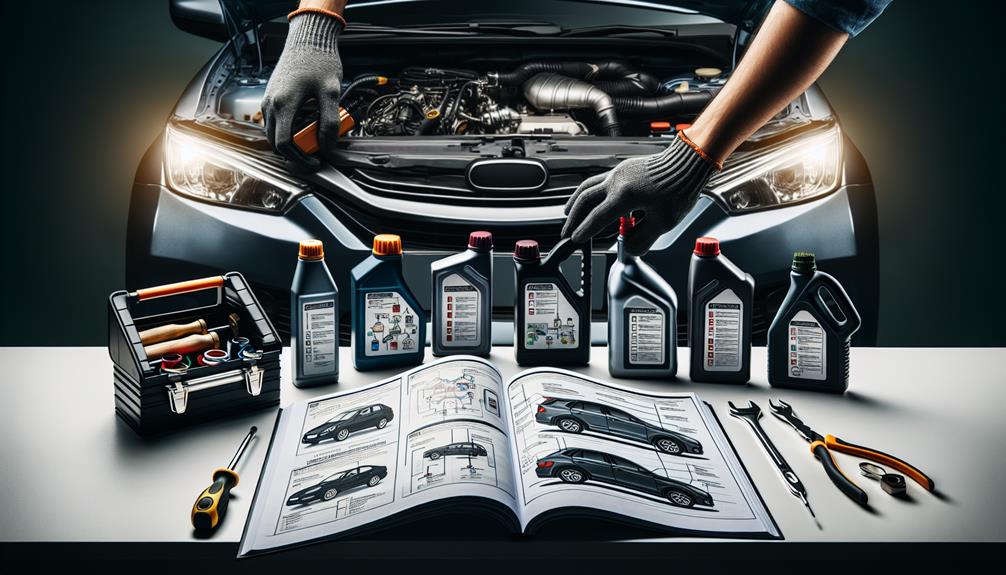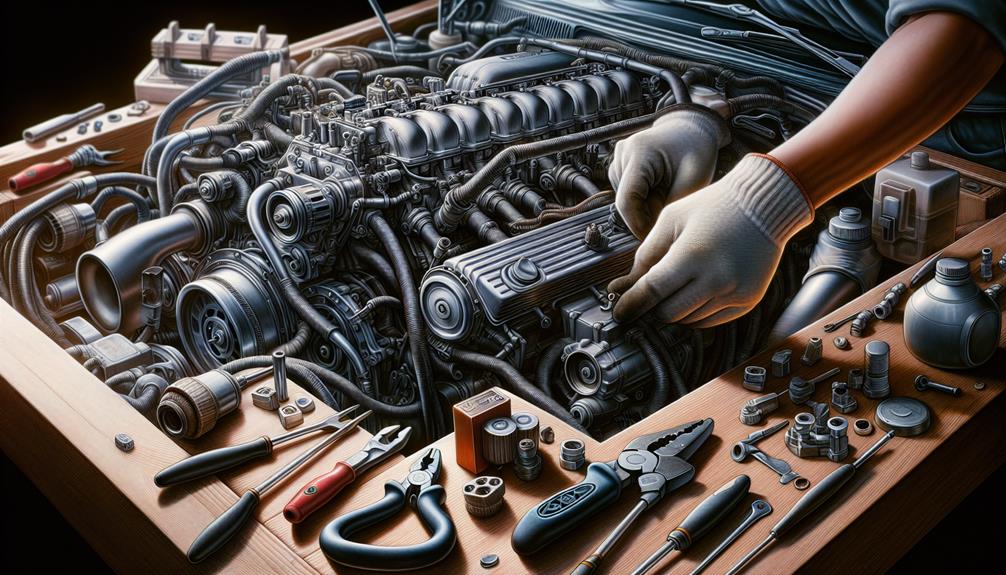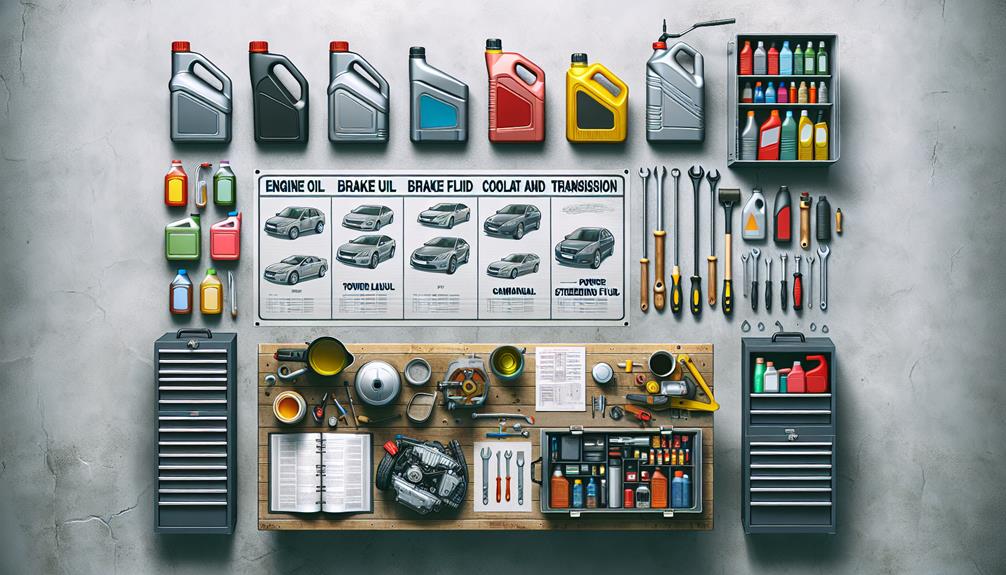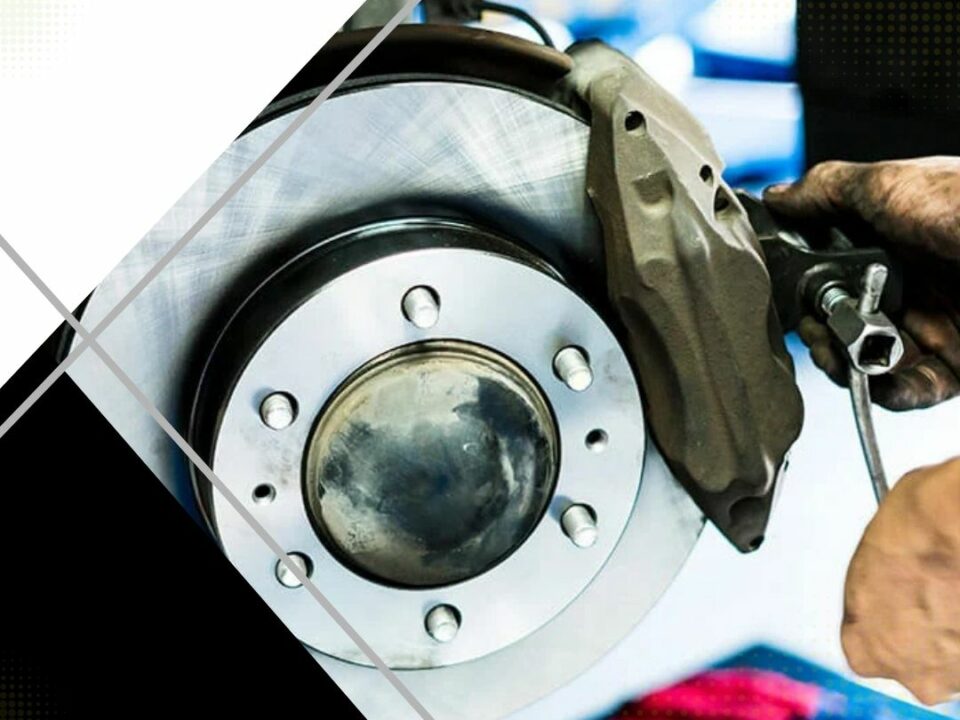
Car Care 101: Preventive Maintenance and Fluid Checks You Can’t Ignore
March 6, 2024
Under the Hood: Exploring Engine Services in Auto Repair
March 8, 2024Just like the human body, your car thrives on the lifeblood of essential fluids. These aren’t your run-of-the-mill liquids; they’re the technical elixirs that keep the heart of your vehicle – the engine – pulsing smoothly and efficiently.
Let’s talk engine oil, the slick guardian of your engine’s numerous moving parts, reducing friction and dispersing heat. Then there’s transmission fluid, the silent workhorse that ensures seamless gear shifts while protecting against wear and tear.
Coolant, the unsung hero, prevents your engine from overheating, while brake fluid, the safety sentinel, enables responsive braking. And let’s not forget power steering fluid, the power behind your effortless turns.
You’re probably wondering, ‘How do these fluids contribute to my car’s preventive maintenance plan?’ Well, let’s get those gears turning…
Understanding Engine Oil Importance
Why is engine oil so crucial, you might ask? Well, it’s the lifeblood of your car’s engine. It serves multiple essential functions. It lubricates the engine’s moving parts, reducing friction and preventing overheating. It also disperses heat, helping to cool the engine down. Additionally, engine oil contains detergents that help clean the engine by picking up dust and debris.
Without quality engine oil, your car’s engine would quickly wear down, leading to costly repairs or even a total engine failure. So, don’t underestimate the importance of regular oil changes. You’re part of a community of car owners who understand this, and you’re not alone. Remember, proper care of your car’s engine oil is a key part of responsible vehicle ownership.
The Role of Transmission Fluid
Just as vital as engine oil, transmission fluid plays an indispensable role in your car’s performance, ensuring smooth gear shifts and optimal operation. It’s a lubricant that reduces friction between the moving parts of your transmission, prolonging its lifespan. The fluid also serves as a coolant, averting overheating during high-speed drives or heavy loads.
Without adequate transmission fluid, you’ll notice rough gear changes, and eventually, severe damage can occur. It’s crucial to check the level and color of your fluid regularly. Fresh fluid is typically clear, with a reddish hue. If it’s dark or has a burnt smell, it’s time for a change.
Coolant: Your Engine’s Best Friend
While understanding the importance of transmission fluid is key, it’s equally crucial to acknowledge the role of another vital car fluid – coolant, your engine’s best friend. This irreplaceable fluid acts as a temperature regulator for your engine. Coolant’s primary function is to absorb excessive heat generated by the engine and distribute it evenly, preventing overheating. It also provides protection against freezing, corrosion, and boilovers.
To ensure your engine’s longevity, regularly check the coolant level. If it’s low, top it up, and if it’s dirty, get it flushed. Remember, using the right type of coolant is crucial – mixing different types can cause severe engine damage. Don’t neglect this crucial companion of your engine; treat it with care for a smoothly running vehicle.
Importance of Brake Fluid
Though often overlooked, brake fluid plays a critical role in your car’s safety system, warranting your attention and understanding. This vital fluid serves as a link between your foot on the brake pedal and your car’s stopping ability. It’s not just about keeping you safe; it’s also about maintaining optimal performance.
Let’s enumerate three key reasons why brake fluid is essential:
1. Transmitting Force: Brake fluid transfers the force from your foot to the brakes, ensuring immediate response.
2. Lubrication: It lubricates movable parts, reducing wear and tear.
3. Preventing Corrosion: Brake fluid has anti-corrosion properties, crucial in preserving your car’s brake system.
Stay in the know, folks. Regular brake fluid checks and timely changes are integral to your car’s health and your safety on the road.
Power Steering Fluid Maintenance
Next in line for your car’s wellness is the preventive maintenance of power steering fluid, an often underestimated yet integral part of your vehicle’s operation. This fluid performs the crucial role of transmitting the force from your steering wheel to the car’s wheels, making your drive smoother and more manageable.
You’ll need to check the fluid levels regularly, ideally every month, to ensure optimal performance. It’s not a complex task; simply locate the reservoir, unscrew the cap, and check the dipstick or the side markings. If it’s low, top it up with the correct type of fluid for your car’s make and model.
Replacing the fluid entirely every two years or 30,000 miles, whichever comes first, prevents potential damage from contaminants and wear.




